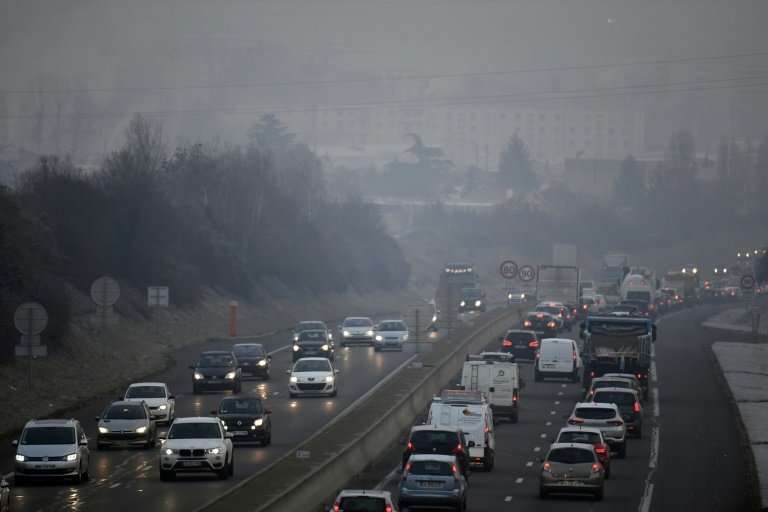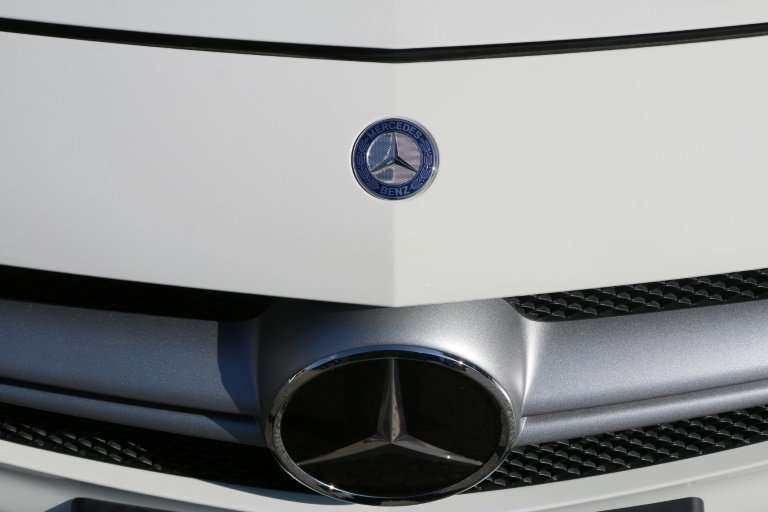Automakers denounce 'unrealistic' EU emissions targets

German and other European automakers warned Tuesday that EU plans to slash carbon dioxide emissions from new cars and vans by 2030 are "totally unrealistic" without a network to recharge electric cars and more effort to retrain workers.
European Union countries and the European Parliament agreed in principle on Monday to require new cars in 2030 to emit 37.5 percent less carbon dioxide on average compared to 2021 while van emissions will have to drop 31 percent.
Ambassadors from EU countries are to expected to endorse the deal in Brussels on Wednesday—a deal officials touted as advancing the bloc's efforts to meet commitments under the Paris climate accord.
But carmakers in Europe, particularly in industry powerhouse Germany, complained the new curbs were not well thought through.
"This new regulation demands too much and offers too little incentive," said Bernhard Mattes, head of the German carmakers' federation VDA.
With tougher measures than other parts of the world, he warned, "the European automobile industry will find itself heavily penalised in international competition."
Mattes argued that EU regulators failed to take into account market conditions, saying ordinary motorists were not ready to switch to electric cars.
"EU member countries must also step up to their responsibilities and boost the vehicle recharging infrastructure," he said.
Though the new curbs will apply throughout the bloc, he said, three quarters of the recharging stations for electric cars are located in only four countries: Britain, Germany, France and the Netherlands.
Volkswagen boss Herbert Diess said the rules will "lead to a strong restructuring of production as well as extra factories and battery cells" as the firm switches to electric car production.
'Political motives'
Germany's economy minister Peter Altmaier told newspapers in his country that the "compromise on CO2 curbs is at the limit of what is technically and economically possible."

Germany, backed by several eastern EU countries with auto plants, had sought an emissions cut of only 30 percent.
The European Parliament had wanted a reduction of 40 percent, backed by countries like France, the Netherlands and Ireland.
Concerns were also heard from the European Automobile Manufacturers' Association (ACEA), which also represents firms in Sweden, France, Britain and other countries.
The target "might sound plausible, but is totally unrealistic based on where we stand today," ACEA said.
ACEA said the goals flowed from "political motives" that ignored hurdles to consumers buying more electric and other cleaner vehicles, including their high cost and a lack of recharging and refuelling stations.
But it said the association's members will continue to invest in producing alternatively-powered vehicles.
ACEA called on the 28 EU countries and the European Commission, the EU's executive arm, to make "the much-needed investments in infrastructure."
The association warned that the emissions targets "will have a seismic impact on jobs" in an industry that employs some 13.3 million Europeans.
It urged policy makers to "act swiftly" to present plans that will help workers learn new skills required for building cleaner cars.
Anca Paduraru, a Commission spokeswoman, said in response: "The EU is committed to a socially fair transition leaving no citizens and no regions behind."
The Commission added it has begun promoting the indigenous production of electric car batteries rather than have Europe import them from countries like China.
It is also looking at setting up a fund by 2027 to retrain workers for electric car production—one drawing on proceeds from penalties.
The new rules call for an interim goal of a 15-percent reduction by 2025.
© 2018 AFP


















